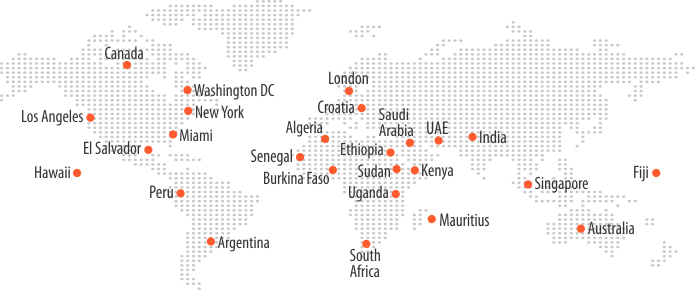Top 10 Ways to Improve Enterprise Messaging Security

A2P business messaging, also known as enterprise messaging, is an efficient and cost-effective way for brands to communicate with their customers. Business use of mobile messaging is on the rise despite predictions of its demise as more platforms are coming together to help companies recognize the potential of A2P messaging solutions.
Travel, banking, and retail companies have been using enterprise messaging solutions for years to deliver automated notifications, such as balance statements, payment reminders, reservation confirmations, and anti-fraud alerts. The recent developments in automation technology in the customer service industry have positively influenced the SMS communication channel.
A recent study showed that conversion rates increase by 112.6% when companies text customers after the initial contact through another channel. However, enterprises must use a secure A2P messaging solution on which customers can rely for safe and effective communication. Apart from encryption and authentication, businesses should deploy specific security measures to ensure that only the intended recipient receives the message and no one tempers with it.
The following are excellent tactics to ensure A2P messaging security for effective and seamless customer communication.
10 Excellent Ways to Secure Enterprise Messaging Solutions for Effective Communication
Review Provider’s Partnership Agreement for Best Practice Code
The telecommunication partners, A2P messaging solution vendors, and businesses must agree on a best practice code. The partnership agreements should detail the type of messages the company will generate and how SMS aggregators will route the traffic to MNOs. MNOs must ensure appropriate security measures are in place to allow only legitimate traffic.
The complexity and diversity of the business messaging value chain may make enforcing such a code difficult. However, many solution vendors and trade associations have learned the hard way that evolution, adoption of best practices, and education significantly reduce the vulnerabilities and grey route traffic. It also ensures everyone in the messaging value chain reaps the rewards.
Keep Interconnect Agreements Up-to-date
There are several ways mobile network operators and SMS aggregators can secure their networks against grey route traffic. One of the simplest ways is to check the interconnection termination rates and ensure they are as up-to-date as possible. Another way is to keep tabs on GSM AA.19 contracts, SMS bilateral agreements, and GSM roaming agreements. Staying up-to-date on these interconnect agreements will enable MNOs to earn more revenue, and businesses will be able to send more messages that reach the intended recipient.
Use SMS Sender ID Protection Registry
Mobile Ecosystem Forum provides an online platform that helps you identify and block fraudulent SMS texts to protect consumers and legitimate businesses from falling victim to messaging scams. This platform, SMS Sender ID Protection Registry, automates cross-stakeholder processes to share information quickly and reliably to facilitate an orchestrated and proactive blocking system.
Organizations can register their message headers as trusted Sender IDs on the whitelist while sending text messages to their customers. It limits fraudsters and criminals from impersonating a brand by checking whether the sender is genuine. This registry is an efficient and tactical solution to mitigate spoofing and smishing.
Ensure Compliance with Privacy Policies and Terms of Service Provided by Your Partner
Privacy policies and terms of service are available easily on providers’ websites. Data protection regulations require specific guidelines to be stated, such as the rights of subscribers whose data is being processed. The rights may include the right to be forgotten, data portability, and subject data access request. Other critical aspects of ensuring compliance are to have the latest security features, protocols, and encryption in the base.
Besides, anything related to payment terms, crediting, and invoices affect the A2P revenue directly. You should check what clear rules are in place for marketing and tracking, i.e., what type of consent needs to be obtained beforehand. There are a few other terms you must review related to the international transfer of data, government supervision, and limitations on content.
Prioritize Transparency and Report Granularity
End-to-end transparency of SMS traffic is vital to track the SMS deliverability, performance, and Quality-of-Service in real-time. Detailed message delivery reporting and accounting ensure accurate billing and traceability. It gives businesses access to detailed message logs and CDR (Call Detail Records) for each text sent using the service.
Extensive delivery analytics and reporting provide detailed visibility into service usage that helps companies learn about customers and the effectiveness of campaigns. Such reports enable intelligent, improved, and actionable insights that can be leveraged to enhance customer engagement and tailor enterprise messaging solutions to customers’ specific needs.
Cybersecurity Tools and Role-based Access Control
The deployment of cybersecurity tools is a must to avoid risks associated with data processing that may stem from malware, data breaches, and more. One should calculate the risk and the likelihood of the risk becoming a reality. After comparing those aspects, service providers and businesses should put processes and tools to combat them.
2FA or two-factor authentication, encryption, and strong password requirement for A2P messaging solutions can help protect stored customer data. Besides, enterprise administrators can implement Role-based Access Control (RBAC) mechanisms to define which users can view message details and reports and manage marketing campaigns.
Use a Single Number for Identity/Campaign
Enterprises should refrain from spreading their campaigns over several numbers. Utilizing a single number for brand identity and a particular campaign is a best practice and gives a better user experience. Avoid using multiple source phone numbers to avoid diluting reputation metrics and filters. Various identities may result in ‘snowshoeing’ and your content being blocked.
Seek Appropriate Consent
It’s crucial to have the appropriate consent, so make sure users explicitly say they want messages from you. This practice ensures you have accurate and reliable customer opt-in for a specific type of message. Opt-out rates are comparatively low when you have obtained explicit customer consent. Carriers or customers may require documented opt-in consent from you as evidence at any time security is compromised.
Configure SMS-Firewall to Counteract Malware and Smishing
The SMS-Firewall can provide excellent protection against:
- Malware.
- The presence of inducement text.
- The target receives a text resulting in social engineering.
The firewall countermeasure for tackling malware may include:
- URL blacklisting.
- Content filter for detecting malware texts.
- Integrated machine learning engine to detect malware download text.
For smishing, countermeasures may include the integration of a blacklist provided by companies that maintain a register of phishing websites. Providers can also integrate machine learning and content filter rules to block SMS with inducement texts. They can also analyze SMS properties to remove spoofed or fake Sender IDs that trick the recipient.
Build SMS Awareness through Consumer Education Programs
Educating consumers about fraudsters’ potential risks helps increase the SMS ecosystem’s overall security. Every business using 2FA mechanisms must actively explain to its customers what is happening. Introduce tools for consumers to report scams and other issues. Making consumers active in the SMS process will help them distinguish between good and bad practices.
Provide Best-in-class Customer Experience with a Secured A2P Messaging Solution
Brands can deliver effective and responsible communication only when the health of the entire business messaging value chain is protected against revenue leakages and frauds, such as grey routes, smishing, and SIM swapping. Bringing A2P messaging security to new level calls for more than just an SMS firewall deployment. The best approach to safeguarding the enterprise messaging traffic is for all industries to comply with regulatory standards and follow security best practices.
Bankai Group is one of the leading players in A2P messaging, offering international hubbing, domestic messaging, 2-way messaging, and HLR lookup services with the help of solid associations with MNOs, MVNOs, and SMS aggregators.
Related Posts
The Role of A2P Messages in Enhancing Customer Engagement
The Emergence of VoIP, Its History, and What the Future Holds






